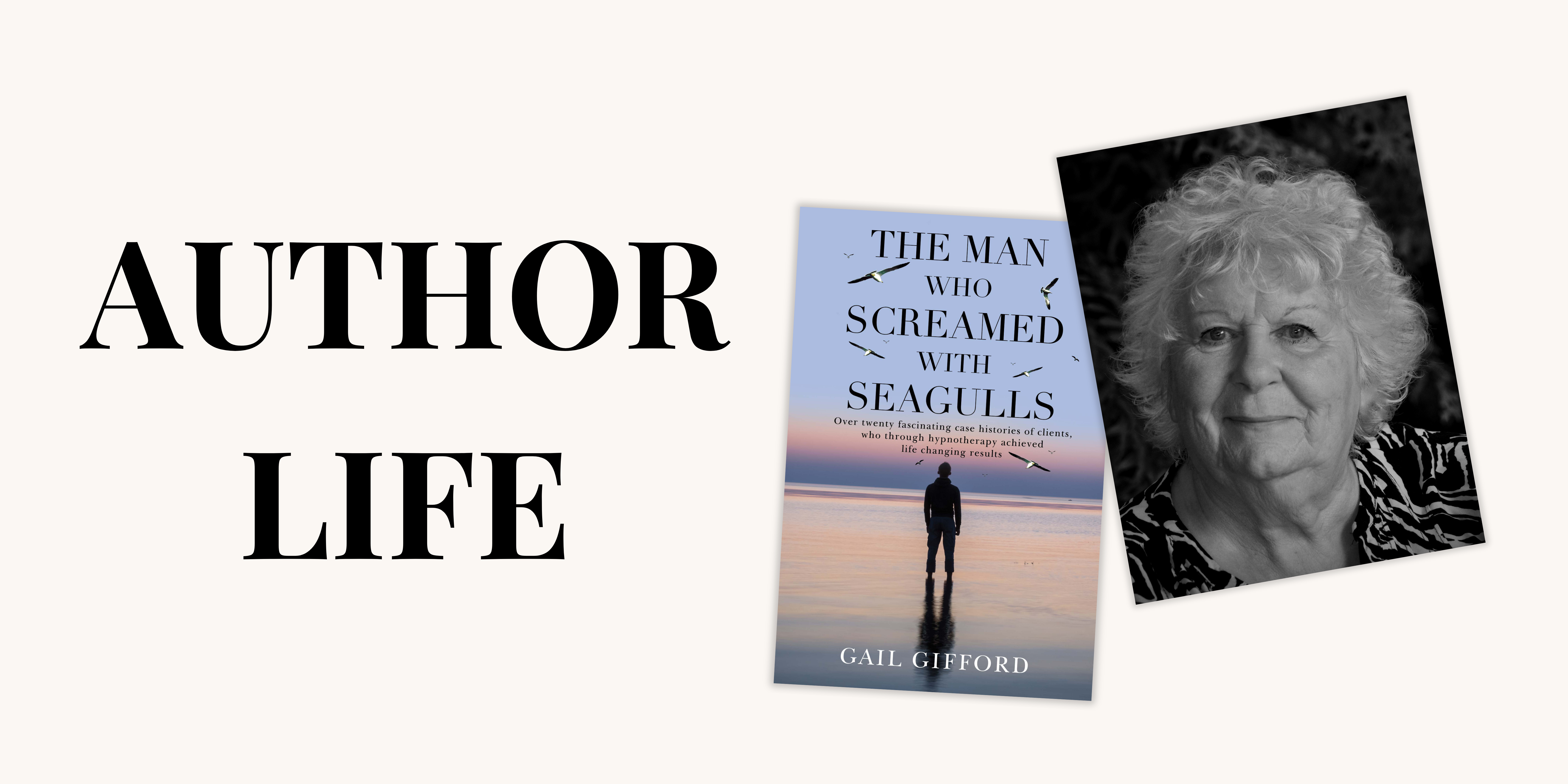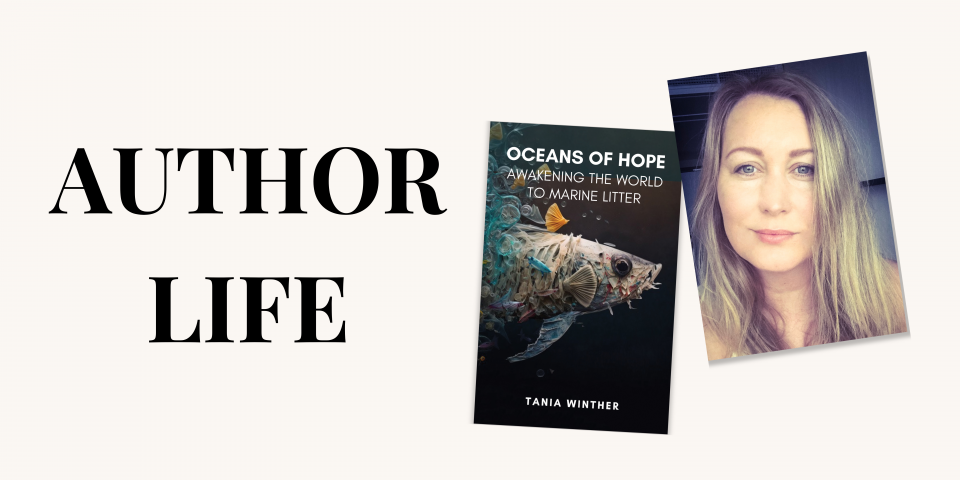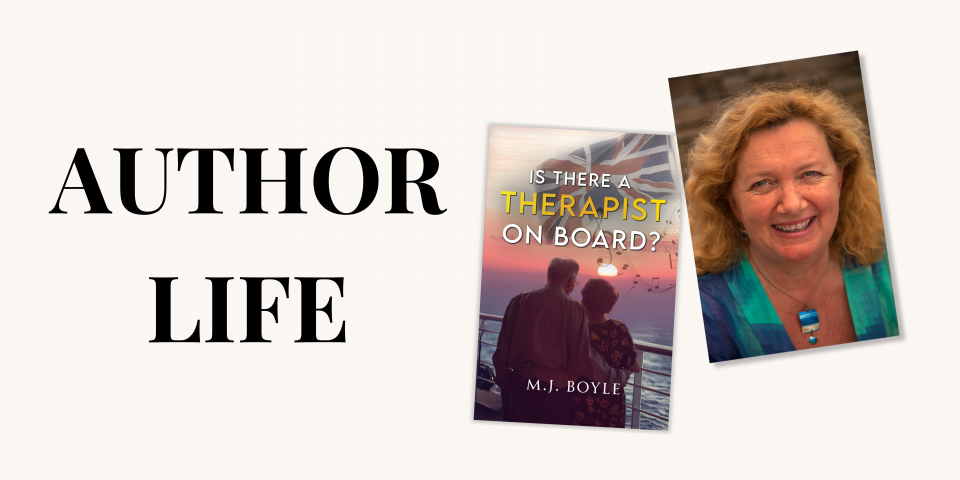Author Life with Gail Gifford
 We are honoured to work with as many authors as we do at Pegasus Publishers – each with their own stories to tell. Their worlds are singular, their characters are relatable, and their creativity truly knows no bounds.
We are honoured to work with as many authors as we do at Pegasus Publishers – each with their own stories to tell. Their worlds are singular, their characters are relatable, and their creativity truly knows no bounds.
This is Author Life, a feature on the Pegasus Blog, that opens the door to each of our author’s creative process and previous literary experience, offering you – the reader – an opportunity to learn a little about the mind behind the novel.
This is Author Life with Gail Gifford, author of ‘The Man who Screamed with Seagulls’
Could you tell us three interesting facts about yourself?
Before I became a published author, I was a teacher in England, Zambia, Nigeria, and Malaysia. On returning to England, I retrained as a curative hypnotherapist and opened my own practice and then went on to work in a Psychology Department of the NHS in the UK. My life experiences in these different countries and the therapy sessions undertaken with clients has formed the basis for my book. I am now retired and live on a small island off the east coast of Australia.
In your own life, what influences and inspires you to write?
I have been influenced by extraordinary life experiences overseas which opened my eyes to the power of the mind over the body, and which have had a direct impact on the way that I worked with clients during therapy. My book recounts memorable sessions with clients using hypnotherapy. I am inspired everyday by the resilience of ordinary people who survive extraordinary events.
Which book or author has had the biggest impact on you, and why?
The Thorn Birds by Colleen McCullough.
The Thorn Birds had a huge impact on me. Colleen McCullough’s writing transported me from the cold dark winter of England to the dusty red outback of Australia. I relate to the child, the bride, the mother and the forbidden love that endured. It is a book that I have revisited often throughout the decades and its appeal never diminishes. Now that I live in Australia I can relate to the beauty of this vast and ‘sunburnt country.’
What were your first experiences with writing?
Writing The Man Who Screamed with Seagulls was my first experience of writing with purpose. I wanted to make a record of the client sessions which had been memorable to me throughout my career using hypnotherapy. Some of the outcomes were so extraordinary that I believed that they should be shared while I could still remember them. I believed that these sessions would be of interest to the reader and demonstrate how sometimes unconventional methods can succeed when conventional treatments have failed.
In your opinion, what are the key ingredients for a good story or novel?
For me it is important that the reader relates to the character. In my own writing I was describing actual events which had occurred with real people who came to me as clients. I did not have to fabricate details or invent outcomes but what I did have to do was protect the identities of those clients who had been brave enough to seek help and share their therapy journey with me. I hope that readers can empathise with the clients and understand the complexities of how therapy can help to identify damage that has occurred and allow understanding, so that healing can begin.
In your opinion, how long should an author spend on their craft every day?
Every writer is different and must write as best suits their own individual style. I rose early and wrote in exercise books before breakfast. Each client experience that I was focusing on had their own therapy journey as a complete chapter, and I would write until satisfied that I had captured the essence of their story. I did attempt to use a voice app that would record my speaking and translate into writing – I soon abandoned this as I found it interfered with my thought process, and the AI generated writing did not flow as freely. I edited later when reading my handwritten notes out to be typed up by my daughter. It was at this point as I watched the word count increase that my writing first started to look like a manuscript.
What is the most challenging part of writing a book, and what did you learn from it?
Writing the initial stories in my exercise book was the most natural part of the process – I recorded what I remembered, and the words flowed. Subsequent editing was challenging as I was caught between remaining true to the story, faithful to the therapy and ensuring that the client’s identity was protected. I engaged the assistance of an editor to help with punctuation and formatting prior to sending my manuscript away for consideration. This editor promised much but delivered little and cost me time and money as I repaired the damage that had been done to my original draft. My voice had been lost. From this experience I learnt that the person who cared most about how my book would be completed – was me. I was delighted and relieved after receiving the first on-line edit back from Pegasus, that my voice had been retained, the writing and stories were still recognisably mine, for which I was thankful.
What common pitfalls should aspiring writers avoid?
Avoid listening to people who tell you what to do when they have no credible publishing experience! Avoid paying for editing services from people who do not care what happens to your book after they have been paid, and make sure you thoroughly check out the credentials of anyone professing to be able to assist you. Avoid negative influences and have the confidence and tenacity to see it through. Once you have your published book it is vital that it is marketed and distributed professionally. I have been so fortunate to have this service provided for me by Pegasus.
What writing advice would you offer to your younger self?
In hindsight I would have advised my younger self to have started writing years earlier! I had always thought that I might write a book, but it took Covid lockdown to give me the space and motivation to finally start writing. Once I had started, it only took a few months to have the stories and chapter outlines completed. Once submitted and accepted for publication it then took over a year to complete and edit with the publisher, prior to final publication.
MORE FROM THE BLOG
-

Author Life with Tania Winther
We are honoured to work with as many authors as we do at Pegasus Publishers – each with their own stories to tell. Their worlds are singular, their characters are relatable, and their creativity truly knows no bounds. This is Author Life, a feature on the Pegasus Blog, that opens ...
read more -

Author Life with M.J. Boyle
We are honoured to work with as many authors as we do at Pegasus Publishers – each with their own stories to tell. Their worlds are singular, their characters are relatable, and their creativity truly knows no bounds. This is Author Life, a feature on the Pegasus Blog, that opens ...
read more
